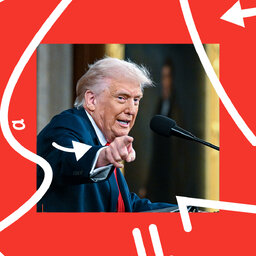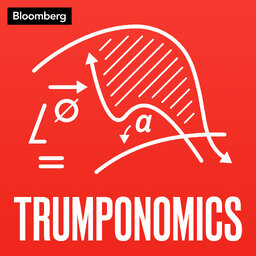On this special Monday episode, White House national security adviser for economics Daleep Singh explains how America is seeking to maintain global influence. Bloomberg senior editor Ruchi Bhatia discusses the likely victory of Prime Minister Narendra Modi’s party in India’s election and what it means for the world’s fastest-growing major economy. And Stephanie and Allegra discuss the election results in South Africa and Mexico.
In 1 playlist(s)
Trumponomics
Tariffs, crypto, deregulation, tax cuts, protectionism, are just some of the things back on the tabl…Social links
Follow podcast
Recent clips

Exclusive: Rachel Reeves on Iran Shock, US Trade and Inflation Risks
25:18

Introducing: Bloomberg This Weekend
01:08

Trump’s Rosy Economic Message Faces a Reality Check
30:53
 Trumponomics
Trumponomics